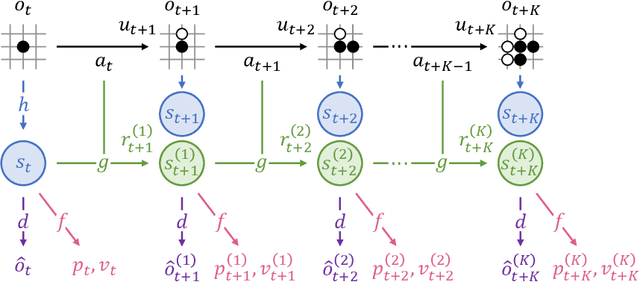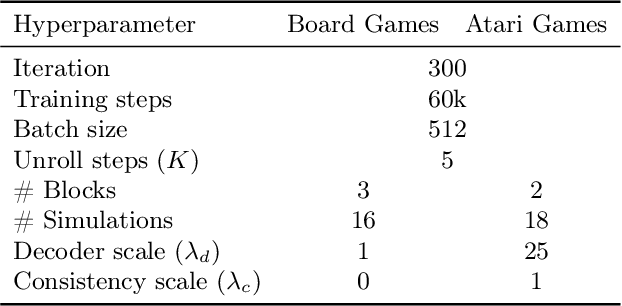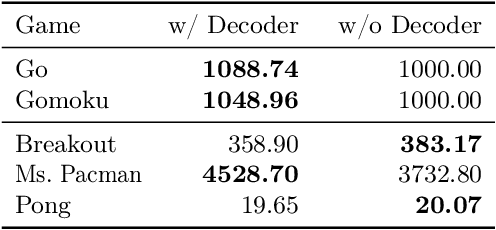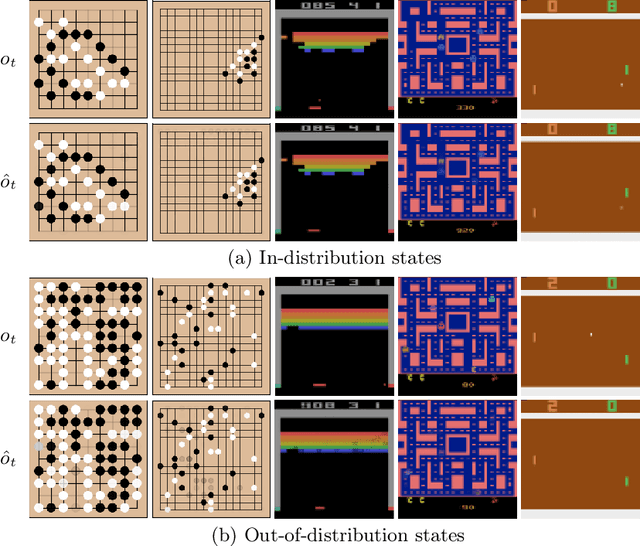Yan-Ru Ju
Interpreting the Learned Model in MuZero Planning
Nov 07, 2024



Abstract:MuZero has achieved superhuman performance in various games by using a dynamics network to predict environment dynamics for planning, without relying on simulators. However, the latent states learned by the dynamics network make its planning process opaque. This paper aims to demystify MuZero's model by interpreting the learned latent states. We incorporate observation reconstruction and state consistency into MuZero training and conduct an in-depth analysis to evaluate latent states across two board games: 9x9 Go and Outer-Open Gomoku, and three Atari games: Breakout, Ms. Pacman, and Pong. Our findings reveal that while the dynamics network becomes less accurate over longer simulations, MuZero still performs effectively by using planning to correct errors. Our experiments also show that the dynamics network learns better latent states in board games than in Atari games. These insights contribute to a better understanding of MuZero and offer directions for future research to improve the playing performance, robustness, and interpretability of the MuZero algorithm.
ResTNet: Defense against Adversarial Policies via Transformer in Computer Go
Oct 07, 2024Abstract:Although AlphaZero has achieved superhuman levels in Go, recent research has highlighted its vulnerability in particular situations requiring a more comprehensive understanding of the entire board. To address this challenge, this paper introduces ResTNet, a network that interleaves residual networks and Transformer. Our empirical experiments demonstrate several advantages of using ResTNet. First, it not only improves playing strength but also enhances the ability of global information. Second, it defends against an adversary Go program, called cyclic-adversary, tailor-made for attacking AlphaZero algorithms, significantly reducing the average probability of being attacked rate from 70.44% to 23.91%. Third, it improves the accuracy from 59.15% to 80.01% in correctly recognizing ladder patterns, which are one of the challenging patterns for Go AIs. Finally, ResTNet offers a potential explanation of the decision-making process and can also be applied to other games like Hex. To the best of our knowledge, ResTNet is the first to integrate residual networks and Transformer in the context of AlphaZero for board games, suggesting a promising direction for enhancing AlphaZero's global understanding.
 Add to Chrome
Add to Chrome Add to Firefox
Add to Firefox Add to Edge
Add to Edge